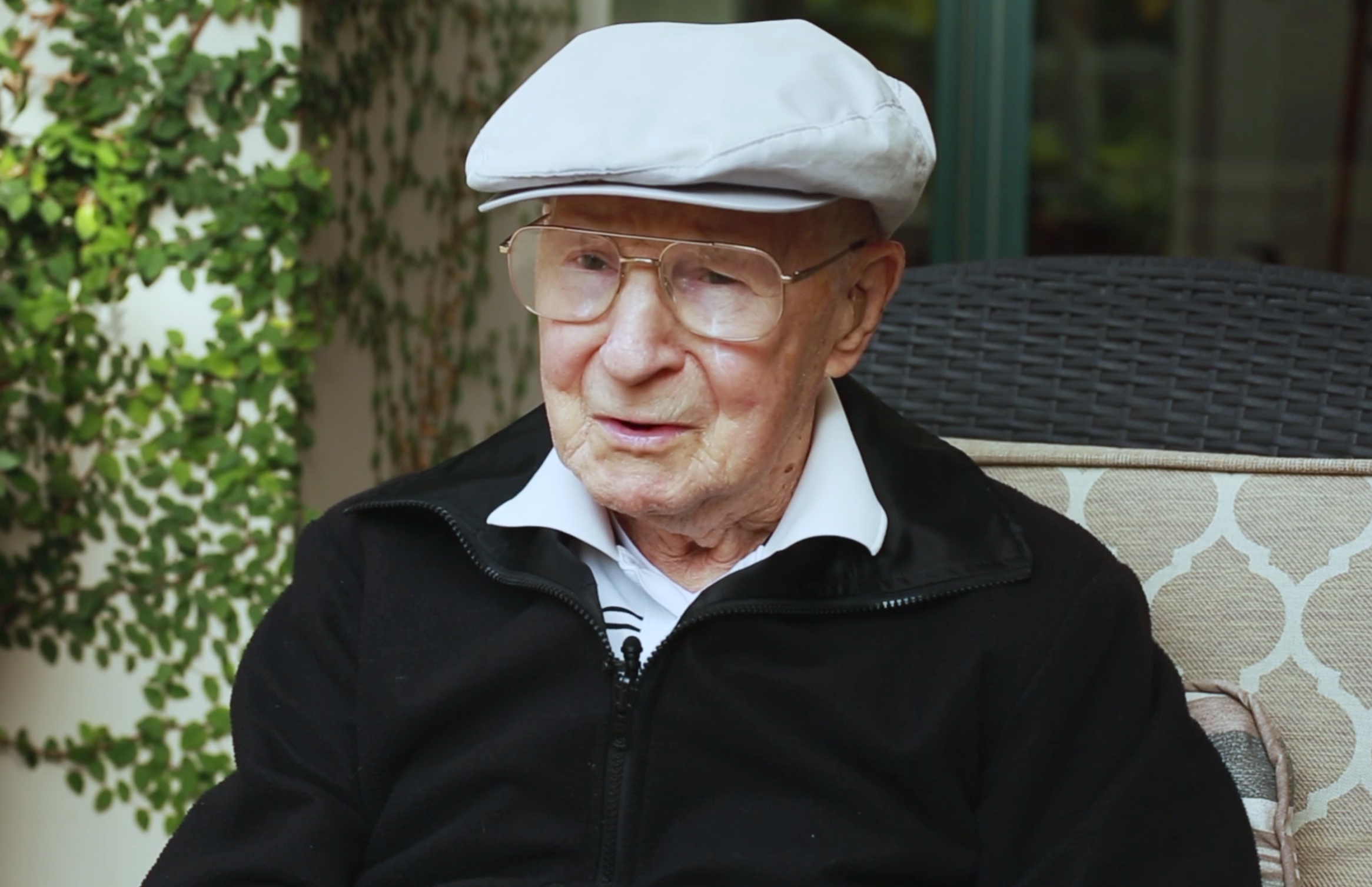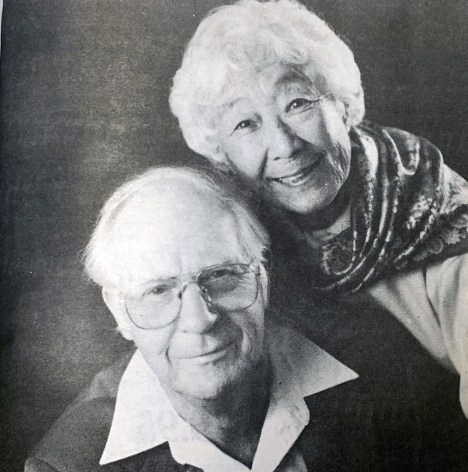
He was the dean of local journalists, the Boswell of the environmental movement. But Bob Sollen, the Santa Barbara News-Press reporter who covered the 1969 oil spill in the Channel — a disaster that blackened local beaches from Goleta to Ventura and was dubbed “the environmental shot heard ’round the world” — never took much credit for his pioneering work.
“I never dug out any information,” he told me once, in his unassuming way. “It just flowed into my desk faster than I could report it.”
Sollen worked at the News-Press from 1963 to 1985, a period of rising prestige and influence at the paper. He started out as a copy editor, but after taking part in a Vietnam War protest and being quoted in print, he was transferred to a “low-profile” job covering offshore oil.
On January 29, 1969, a day after the blowout of an oil well in the Channel owned by Union Oil, Sollen got an anonymous phone call.
“The ocean is boiling around Platform A,” the caller said. “Thousands of tons of oil are headed for the beach.”
Sollen broke the news under the headline “Offshore Platform Mishap: Giant Oil Slick Spreading in Santa Barbara Channel.” Within a week, waves thick with oil were crashing soundlessly on local beaches. For months, as the oil welled up from the ocean floor, and even after the well was plugged, Sollen pounded out front-page stories on the futile cleanup (they were using straw); helpless efforts to save the birds (thousands died); the token visit of then president Richard Nixon (he vetoed the Clean Water Act); and a demonstration on Stearns Wharf, in which a polite but determined crowd evicted Big Oil from the waterfront.
“A well-dressed crowd came out on a Sunday afternoon to a protest picnic along the shore,” Sollen recalled years later in a piece about that historic protest. “They got word that the oil industry was bringing equipment in to start loading and unloading. They all stood up, the women in their best Sunday dresses and the men in their suits and ties, and stood in front of the truck, and said, ‘No further.’”
Marc McGinnes, a Santa Barbara public-interest lawyer who cofounded the Community Environmental Council after the spill, said, “Bob’s reportage assisted the community in finding a voice that was more than ‘get oil out.’ We claimed the right to defend our environment.”
Sollen had seen it all coming. Two months before the black tide sullied Santa Barbara’s beaches, he launched his new beat with a five-part series about the threat of an oil spill during the offshore drilling boom in the Channel — and won a national award for conservation writing from the Scripps-Howard Foundation for his prophetic warning.
“It’s late and many concerned citizens have a sinking feeling that oil drilling activity in the Santa Barbara Channel, with all its potential for pollution, is running ahead of the progress made in coping with the possible damage,” the series concluded.

In 1985, I was hired by the New York Times, then the owner of the News-Press, to take Sollen’s place, as if anyone could. I was daunted by the mountain of prose he left behind, stuffed into envelopes in the newspaper morgue and still fresh in the minds of a sophisticated citizenry. Sollen was not a flashy writer, but he was thorough, and when he retired, the county Board of Supervisors passed a proclamation praising him for “putting into plain English the complex and technical jargon of science, industry and government.”
In his so-called retirement, Sollen had a second career as a book author, college lecturer, and planning commissioner. He drew on his encyclopedic knowledge of the local oil industry and his bulging filing cabinets to write An Ocean of Oil: A Century of Political Struggle over Petroleum Off the California Coast. It covered the spill and the host of federal, state, and local regulations that followed in its wake.
In 1996, Sollen donated the manuscript of his book and 23 boxes of clippings, articles, memos, notes, scrapbooks, maps, government reports, and photographs dating back 100 years on the oil industry to Davidson Library at UC Santa Barbara.
Between 1985 and 1999, Sollen taught a course at UCSB in environmental studies, a pioneering program that was created in the wake of the oil spill. He served on the Santa Barbara County Planning Commission from 1989 to 1991 and on the boards of several environmentalist nonprofit groups, including the Citizens Planning Association, Los Padres Sierra Club chapter, and Environmental Defense Center.
Sollen was born in Menominee, Michigan, a town of abominable winters — “a place that was certainly not my choice,” he said. He served in the U.S. Coast Guard during World War II and graduated from the University of Wisconsin in 1948 with a BA in political science and journalism. During his senior year, Sollen created a stir by dropping out of journalism and writing a column for the student paper, The Daily Cardinal, slamming the vaunted J-school as “stagnant and obsolete.” State and local papers picked up the story, and within six weeks, the director was demoted.
In 1970, Sollen married Tomika (“Tomi”) Shibutani and they traveled through the U.S. visiting her scattered relatives, sending dispatches to the News-Press under gloomy headlines (“Environmental Crisis Evident During Reporter’s Auto Trip.”) In 1996, the Sollens were honored as local heroes by the Santa Barbara Independent and the Environmental Defense Center.
Sollen planned to write an autobiography titled Out of Step 40 Years: Struggles of a Dissident Journalist, but he never got past his first 20 years. He grew weary of the nostalgic observations of the anniversary of the oil spill as some kind of turning point in people’s relationships with the planet; he had long since turned his attention to climate change and the upsets it would bring. Sollen began even to object to the use of the word “environment,” which he viewed as a vague nonword. The entire ecology of the planet, not simply its environment, was at stake, he insisted.
“We are still addicted to treating nature abusively through overconsumption, greed, control, management, arrogance, and living for the day,” Sollen said at a local forum in 2009. “These are at new levels of intensity in the history of Homo sapiens.”
Sollen remained a reader of the News-Press to the end, but he was dismayed by what had become of the once-venerable institution.
“This publication doesn’t know Santa Barbara,” he said. “They have no feeling for the significance of events. It’s an alien paper now.”
One of the last times I saw Bob, fragile as he was, he told me, “I still have a story I want to write.”
Melinda Burns, a former senior writer at the News-Press, is a freelance writer in Santa Barbara.

You must be logged in to post a comment.